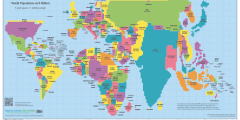Trainer Spotlight
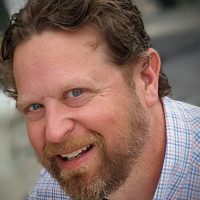
Howard Aprill
Howard Aprill is a Naturalist at Wehr Nature Center with Milwaukee County Parks in Wisconsin where he conducts environmental education and interpretation programs for all ages. Howard joined the Trainer’s Network in 2013 and has been enthusiastically presenting Population Education workshops ever since. In 2019, he was honored as Master Front-line Interpreter by the National Association for Interpretation (NAI).
After starting as a Fisheries and Wildlife Management major in college, Howard became “increasingly interested in the human dimensions of wildlife management and our relationships with natural resources.” Howard was inspired to join the PopEd Trainer’s Network after coming across the activity, Population Circle, while at work. He began using it in his nature center programming right away, and it continues to be his favorite PopEd lesson – he shares it at every workshop he presents! Howard has reflected, “When I started out world population was coming up on 6 billion. The lesson plan is now updated to reflect a global population of 8 billion.”
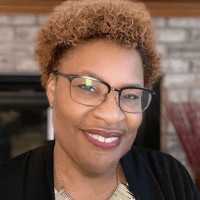
Rebekah Baker
Dr. Rebekah Baker is an Associate Professor of Teacher Education at Anderson University in Indiana. She teaches social studies, math and STEM methods classes, as well as multicultural education. After first discovering PopEd at the IN state math conference, she has become a go-to facilitator in the Indianapolis area. Rebekah “enjoys sharing information with others in meaningful, engaging, and fun ways” and especially likes the lessons Who Polluted the Potomac? and Mining for Chocolate because of their hands-on nature and the ability to use simple materials to teach powerful lessons.
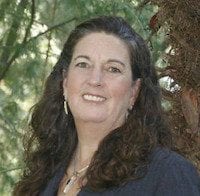
Lynda Deschambault
Lynda Deschambault is currently the Executive Director of the Contra Costa County Climate Leaders, a program she founded in 2007 that provides outreach tools and assistance to local government decision-makers to address climate change. She has more than 37 years of experience as an Environmental Scientist and Educator, and has worked on environmental analysis, community outreach, inspections, enforcement, pollution prevention and environmental cleanup. Lynda often focuses her efforts on working with schools, tribes and environmental justice communities.
Lynda is a veteran PopEd trainer, having joined the Trainers Network in 2001. Some of her favorite lessons include Earth: The Apple of Our Eye and People on the Move. She also likes Mining for Chocolate, saying “that one really hits home for me. Can you do it without damaging the cookie and what’s around it? Can you put the cookie back together again? I worked for the EPA for 20 years managing mountain top removal mining sites. We can’t mine the resources this way without it crumbling away, and in the lesson, you can’t take resources out without the cookie crumbling.”
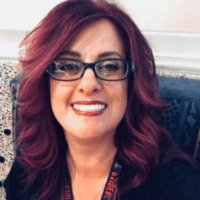
Holli Gonzalez
Holli Gonzalez is the Science Instructional Specialist for the Bakersfield City School District in Bakersfield, CA and a 17-year veteran science teacher. She also works as an adjunct lecturer at California State University, Bakersfield, where she has conducted a number of Population Education workshops with her pre-service students since joining the trainer’s network in 2016. Holli is a NASA Solar System Ambassador and a current PhD candidate in Global STEM Education from Texas Tech University.
Holli’s favorite PopEd activities include Mining for Chocolate and Earth: The Apple of Our Eye, which she describes as a “big eye-opener” for her pre-service students. She conducts a PopEd workshop with her students every semester and appreciates the way her students are always excited about using PopEd resources in their own classrooms.
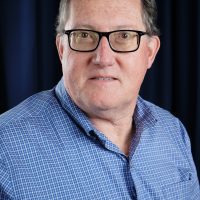
Kenneth Jones
Kenneth Jones is a Lecturer and Master Teacher with UTeach Columbus at Columbus State University and became a PopEd trainer in 2011. He encourages the aspiring educators in his class to find confidence in making the material their own, a skill that shines through in his PopEd workshops.
Kenneth says, “I like the idea of educating people about population and environmental issues. We have a responsibility to be stewards of the Earth. A lot of times people aren’t aware of the impacts of population growth and what to do about it, and they aren’t aware of the larger global perspective.” He particularly likes lessons that are interdisciplinary, and his favorites include Mining for Chocolate, Timber, Something for Everyone, and Panther Hunt. Kenneth enjoys presenting for both pre-service classes and at conferences. He especially finds value in presenting to large audiences where he can adapt to the challenge of a large group, facilitate great discussion, and see educators get excited to use PopEd materials in their classrooms.
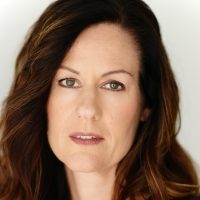
Robin Koerber
Robin Koerber is a Clinical Assistant Professor of Early Childhood Education at Missouri State University, where she also coordinates the Internship Academy that places education students in year-long teaching internships. Robin is a former kindergarten teacher. She’s been in the PopEd Trainers’ Network since 2017 and has facilitated nearly 30 workshops since then.
Robin’s favorite activity to share in workshops is Who Polluted the River? She says, “It’s not easy to choose but I always enjoy facilitating the Who Polluted the River lesson. It clearly demonstrates how everyone shares in being a part of the problem, but we can also consciously work to be a part of the solution by taking care of our waterways.”
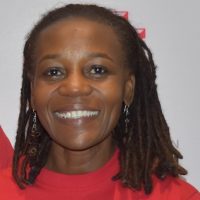
Judy Maima Skeele
Dr. Judy Maima Skeele is a Professor of Child Development & Education at San Jacinto College in Houston, TX, as well as the President of TERJA, a non-profit that creates learning and growth opportunities for marginalized youth worldwide. Through TERJA’s signature program, students in the U.S. and Kenya (Judy’s home country) partner to tell digital stories about themselves and their communities.
Judy’s interest in global citizenship had her inviting PopEd into her classroom in 2011, and in 2014, Judy joined the Trainer’s Network. She says, “It was clear to me that Population Education was making a significant impact on my students’ understanding of global issues.”
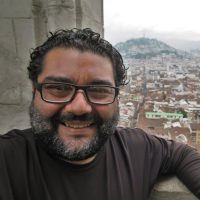
Eliezer Nieves-Rodriguez
Eliezer Nieves-Rodriguez is a Geography Professor at the University of Puerto Rico and an Education Specialist at the San Juan Bay Estuary. He first came to PopEd after attending a session at the National Association for Interpretation (NAI) conference and in his words, “the rest was history.”
Eliezer quickly saw the relevance of PopEd lessons for his human geography pre-service courses. In fact, his most memorable PopEd experience has been seeing his students use PopEd materials in their own classrooms. He also enjoys sharing PopEd through the NGO he works for, Estuario de la Bahía de San Juan, where he trains educators on PopEd lessons that will help them teach about the relationship between people, water, watersheds and conservation. He shared that, “the activities facilitate constructivist teaching and help us educators and interpreters to inspire about important issues that occur in our cities, natural areas and communities.”
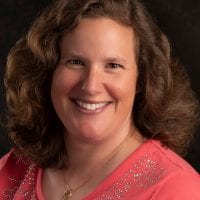
Kate Silvis
Dr. Kate Silvis is a Professor and Chair of Education at La Roche University in Pittsburgh, where she has taught since 2006. Prior to working in higher education, Kate taught K-8 grades in Ohio and Pennsylvania public schools. Kate has been a key figure in facilitating PopEd’s Act48 programming in Pennsylvania. (Act 48 is a Pennsylvania law requiring teachers to earn professional development credits every five years). She has served both as a facilitator of PopEd’s Act 48 workshops and helped PopEd strategize how to expand Act 48 programming throughout the state.
Kate first connected with PopEd when staff offered to facilitate a workshop in her Social Studies and Science methods class. She reflects, “I had seen other people do these interactive activities and it looked like fun – I wanted to do it myself.” Kate also appreciates that PopEd lessons have a connection to children’s literature, knowing that elementary teachers enjoy using children’s books in the classroom.
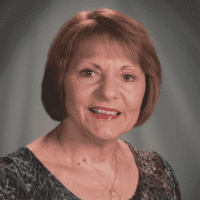
Shirley Smith
Shirley Smith is a retired university professor with 46 years of experience in the field of education, including serving as an elementary, middle school, and gifted education teacher and a curriculum specialist. She has served as a PopEd trainer for 8 years and has facilitated over a dozen workshops. Shirley shared that being a trainer with PopEd, “enables me to keep in touch with former colleagues and give back to the profession. As a trainer, I especially enjoy working with pre-service teachers because they are so enthusiastic and appreciate receiving resources and lesson plans that are aligned with state standards. They give me hope in the future of our teaching profession!”
Her favorite PopEd lesson plan is Power of the Pyramids. Shirley appreciates that “ math students are able to display data in a new and interesting way, and the follow-up questions help students expand their global awareness.”
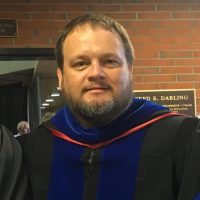
Scott Townsend
Dr. Scott Townsend is a professor of science education at Eastern Kentucky University in Richmond, KY. Since joining the network in 2010, Scott has presented over 60 workshops for pre-service educators at EKU as well as at conferences including the Kentucky Science Teachers Association and the Kentucky Association for Gifted Education.
Scott’s favorite PopEd lesson is Who Polluted the Potomac?, which he facilitates with his elementary science methods students each semester. Scott says: “I constantly receive emails or get tagged on social media of my former students (some from several years ago), now elementary teachers, doing the activity with their students. I recently had a student who did it with her 5th graders, and extended the lesson into an engineering activity in which the students had to create a water filter to clean the water from the tank. It obviously makes me very proud, as a science teacher educator, to see activities we did in my classroom being implemented in theirs.”
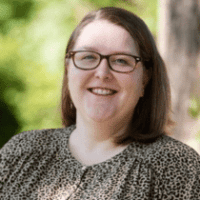
Julie Travaglini
Julie Travaglini is the Senior Director of Education and Curriculum for Allegheny Land Trust. Her favorite PopEd lessons are Carbon Crunch and Crowding Can Be Seedy. For Crowing Can Be Seedy, she has her own twist: “I like to add in a piece about invasive species and plant a “bad” seed in the pot. The bad seed is an invasive species and when they grow, they open an umbrella which shades out the other seedlings. It’s a great way to introduce invasives and their traits/effects. We also swap out the seed growing portion for growing seeds hydroponically in pool noodles at our summer camps!” One of Julie’s favorite things about facilitating PopEd workshops is getting to connect with workshop participants at conferences.
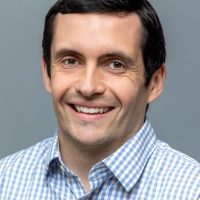
Anthony Zanin
Anthony Zanin is the Assistant Principal of Farley MS and a former high school teacher. He first discovered PopEd through the lesson Demographically Divided World. “When I started teaching AP Human Geography, multiple teachers directed me to the Earth Matters curriculum.”
Each summer, Anthony he shares resources with hundreds of APHG teachers at Advanced Placement Summer Institutes. The high school geography lesson Tale of Three Megacities is his current favorite. “This lesson meets everything that I try to include in a lesson from working with documents and different sources, while also providing purposeful group conversations and peer collaboration. This lesson is also a fan-favorite amongst my students.”





